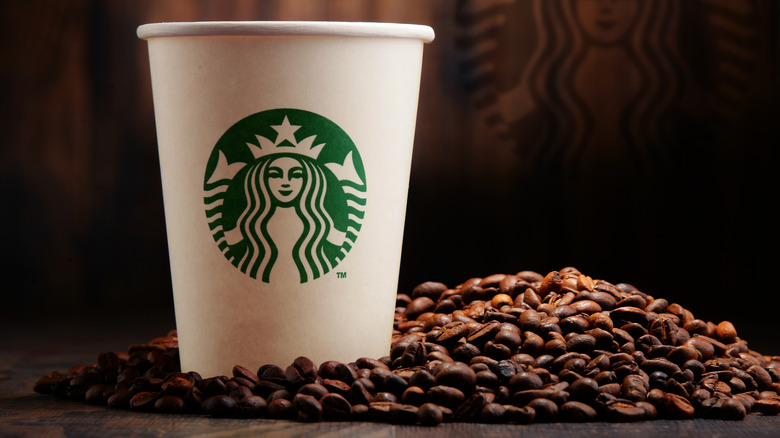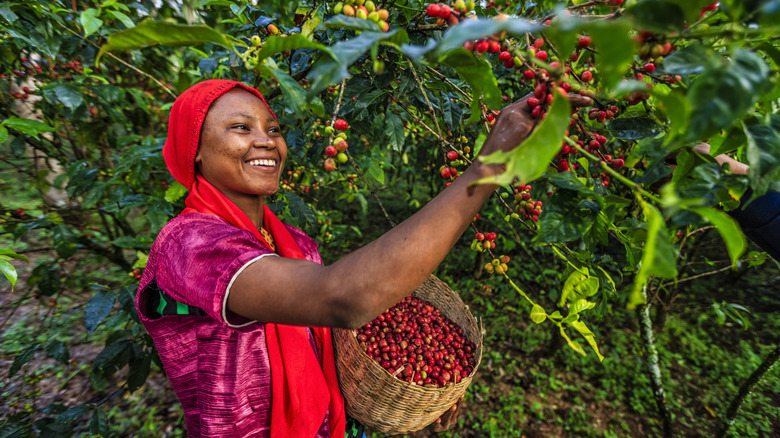Starbucks Is Being Sued For Claiming Its Coffee Is 'Ethically Sourced'
Starbucks has long branded itself as an icon of ethical coffee sourcing and, in fact, was a primary driver in the industry's move toward fair trade coffee policies. Despite these accolades, a consumer advocacy group called the National Consumers League (NCL) is suing the company for alleged false advertising concerning Starbucks' claims that its coffee is 100% ethically sourced. In the filed complaint, the NCL cited several documented instances of child labor, human trafficking, forced labor, and other human rights abuses at farms that Starbucks sources its coffee from.
Starbucks released a statement on January 10, 2024, denying the allegations and expressing its intention to virgorously fight against the charges. In it, Michelle Burns, Starbucks' Executive Vice President of Global Coffee, Social Impact, and Sustainability, pointed out that all of Starbucks' coffee is verified through its C.A.F.E. (Coffee and Farmer Equity) Practices program, which Burns described as being "best-in-class."
In response to our inquiry, Starbucks sent Tasting Table this statement: "We are aware of the lawsuit, and plan to aggressively defend against the asserted claims that Starbucks has misrepresented its ethical sourcing commitments to customers. We take allegations like these extremely seriously and are actively engaged with farms to ensure they adhere to our standards. Each supply chain is required to undergo re-verification regularly and we remain committed to working with our business partners to meet the expectations detailed in our Global Human Rights Statement."
How Starbucks sources its coffee
Starbucks uses its C.A.F.E. Practices program, created in collaboration with Conservation International, to verify that its coffee products are coming from ethical and sustainable farms and it has been doing so since the program was created in 2004. SCS Global Services acts as a third-party verifier of the standards laid out, but critics point out that C.A.F.E. Practices is an internal program, meaning Starbucks itself wrote the rules and guidelines that qualify the coffee as being ethical and sustainable. This arguably introduces a conflict of interest since the company is incentivized to create a guideline for the highest accreditation with the least amount of personal responsibility. The NCL is specifically targeting the C.A.F.E. Practices program in its lawsuit, stating that these types of certification programs are unreliable and misleading.
To its credit, Starbucks does have limitations in how much oversight it can feasibly accomplish over the farms it purchases its coffee from. In her public statement, Michelle Burns mentioned that "in instances where Starbucks is notified of alleged violations, we take immediate action." Whether its efforts are good enough to justify the claim that its coffee is 100% ethically sourced will be up to the courts.

